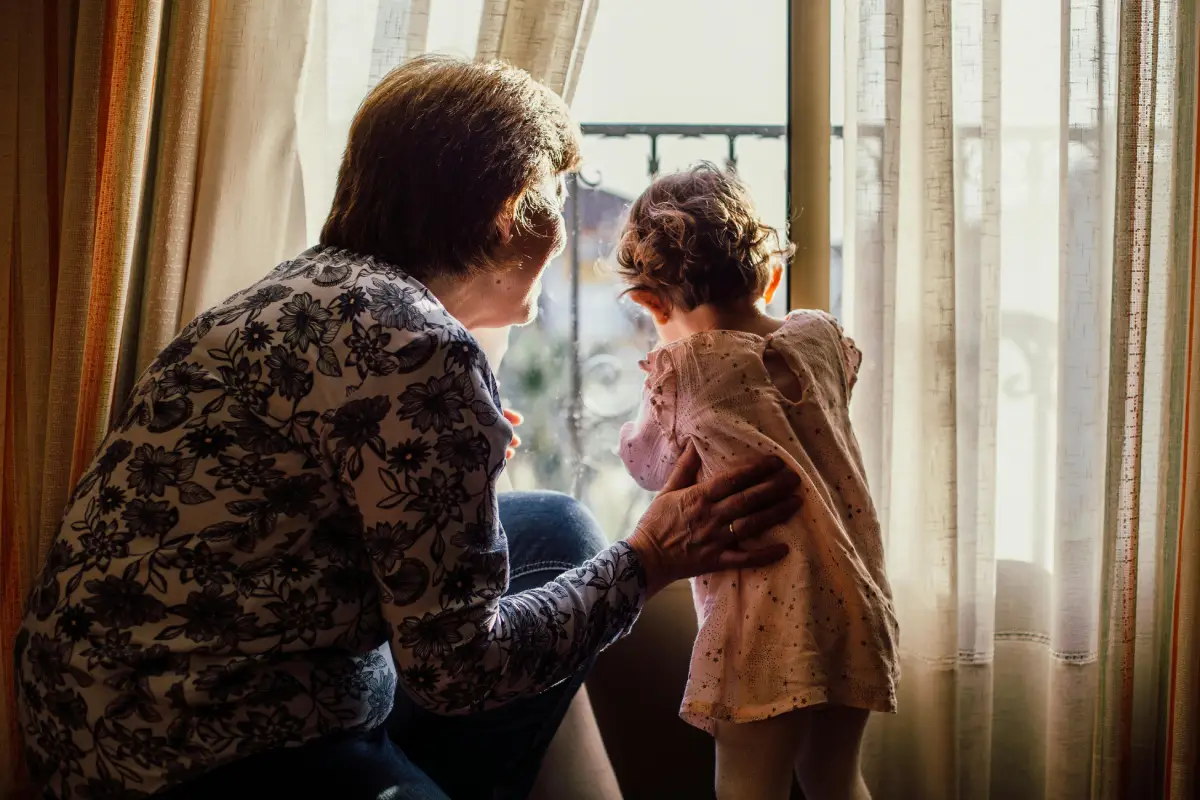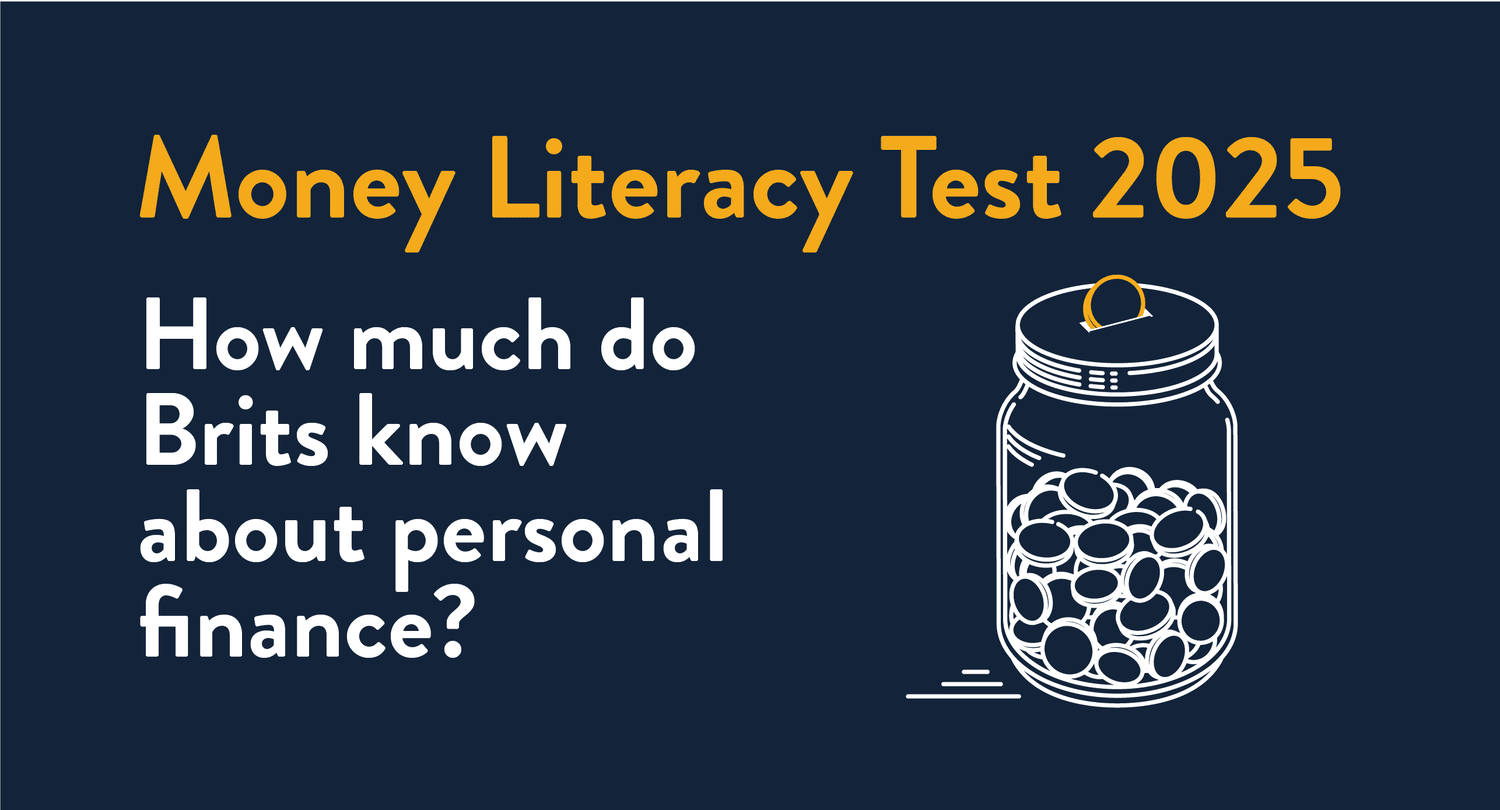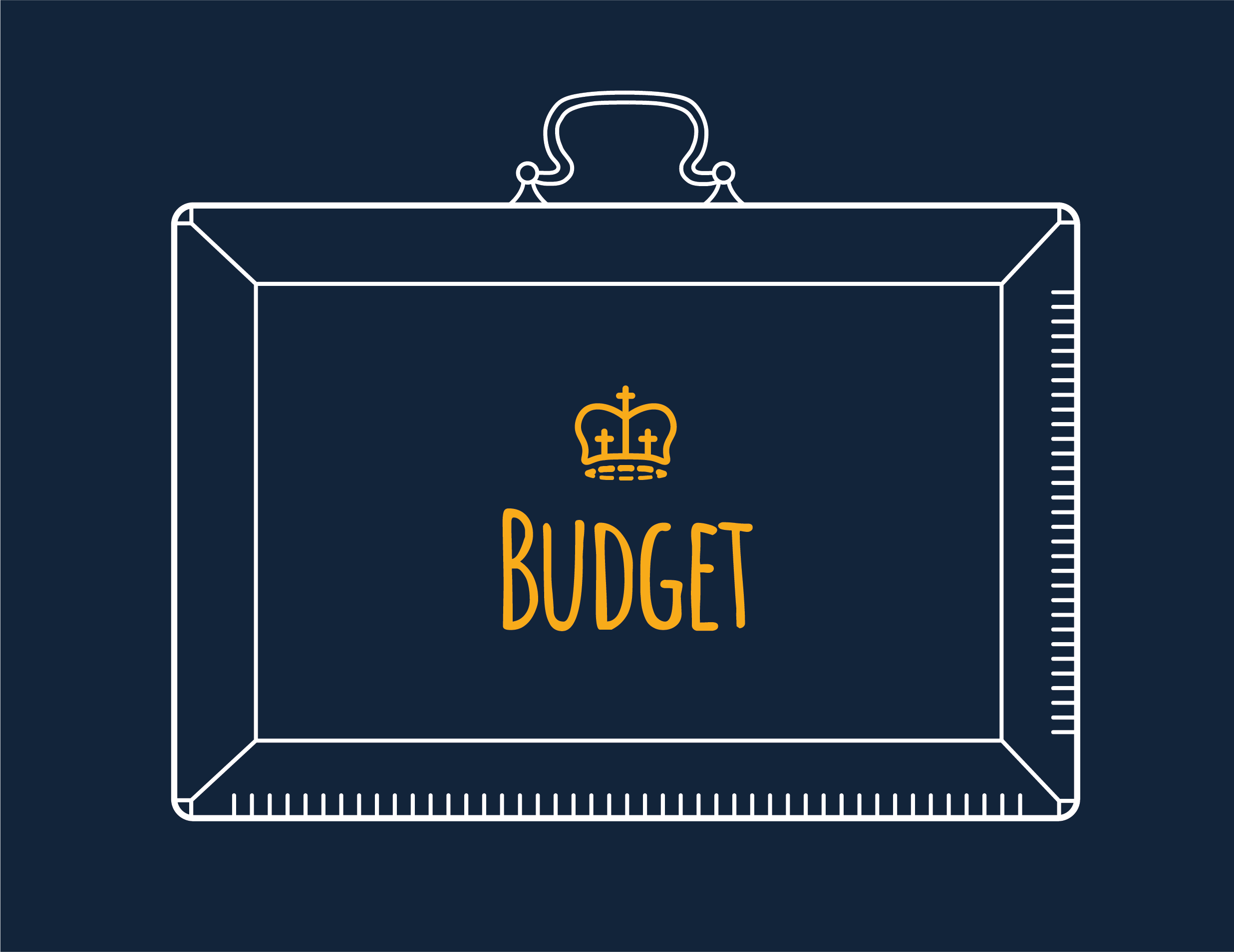
This information was correct in July 2025, but tax rules and allowances can change.
Looking for the best ways to save for your grandchildren? There are a mix of options to choose from. Whether it’s a Junior ISA, simple savings account, or investing on their behalf. But you might be wondering, can a grandparent open a Junior ISA? And does inheritance tax affect your gifts?
This guide has you covered. We’ll explore the pros and cons of each savings option and explain all the tax implications in way that’s easy to understand.
Why should grandparents save for grandchildren?
Saving for your grandchild’s future can open a world of opportunities. It can give them a head start to buy their first home, pay towards university fees, or have some extra cash for a dream holiday or wedding.
But it’s not just about the big milestones. Saving for your grandchildren also teaches them valuable lessons about money management and can help them develop good financial habits.
What about inheritance tax?
It’s important to understand how gifting can affect Inheritance Tax (IHT), which is generally charged at 40% of the value of an estate above the tax-free threshold. It’s currently £325,000 (known as the ‘nil-rate band’).
Any gifts left to grandchildren in your will are typically counted as part of your estate and may be subject to IHT.
- Use your Annual Gift Allowance: You can give away up to £3,000 each tax year without it counting towards inheritance tax on your estate. This is known as your annual exemption. You can give the whole amount to one person or split it between people.
- Carry it forward: You can carry forward unused IHT allowance to the next tax year, giving you a potential £6,000 limit. However, you can only carry forward one year’s allowance to the next year, not any further years. So, use it or lose it.
- Make regular payments: You can regularly give money to someone, like a family member, if you can afford it after supporting yourself. These are known as ‘normal expenditure out of income’ gifts and are exempt from Inheritance Tax. You could help with your loved one’s living costs or put money into a savings account for them. There’s no limit on how much you can give tax-free this way. Plus, you can combine this with other gifting allowances to give more to the same person. For example, you could give your grandchild £60 a month and still give them a separate gift within the tax year’s limits.
- Other exempt gifts: You can also give some gifts outside of your £3,000 allowance. These include small gifts up to £250 per person. You cannot combine this with the £3,000 exemption for the same person. So, you could give each of your grandchildren a £250 birthday present every year. It also includes wedding gifts, but the tax-free amount depends on your relationship to the couple.
- The 7-year rule: If you give gifts that exceed your annual allowance and then die within 7 years, the gift may be subject to IHT. The amount of tax due reduces on a sliding scale depending on how many years have passed between the gift and your passing. It’s also known as taper relief.
- Junior ISAs: Money saved in a Junior ISA usually won’t be counted as part of your estate for IHT if contributions stay within the annual limits.
Imagine your grandchild is getting married next year. You could give them a £2,500 wedding gift and still have your full £3,000 annual allowance to use for other gifts.
Gifts that go over your allowance in any tax year might face inheritance tax, so it’s important to plan carefully.
Longer-term financial support options for grandchildren
If you want to support your grandchildren’s future in the long-term, consider these options:
Junior ISA (JISA)
A Junior ISA is a popular and tax-efficient way to save or invest for a child. The funds are locked away until your grandchild turns 18 and returns are free from Income Tax and Capital Gains Tax.
Types of Junior ISAs
Cash Junior ISA: Similar to a regular savings account with interest.
Stocks & Shares Junior ISA: Invests in the stock market, offering potential for higher returns over the long term, but also carries risk.
Who can open a Junior ISA?
Only a parent or legal guardian can open a Junior ISA.
Can grandparents open a Junior ISA?
Unfortunately only a parent or legal guardian can open a Junior ISA.
Can grandparents contribute?
Yes, once a Junior ISA is open, anyone can contribute to it. But, it’s important to note once a contribution is made, the money is legal owned by the child.
How much can you contribute?
The Junior ISA allowance for 2025/26 is £9,000. This is the total that can be paid in by all contributors, so it’s worth checking with other family members to make sure you don’t go over the limit. You can find the latest Junior ISA allowance on our website.
How to pay into a Junior ISA
Ask the child’s parent or guardian for the account number and the child’s date of birth. You can usually contribute one-off or regular payments by bank transfer or direct debit.
A Shepherds Friendly ISA lets you deposit from £10 per month or one-off payments from as little as £100. To pay in to an account, call the Shepherds Friendly Member Services team at 0800 526 249 or make an online payment.
Contributing to a Junior ISA is a helpful way to support your grandchildren and their future. Even small amounts can make a big difference over time. For more information on Junior ISAs, visit the official GOV.UK website.
Want to learn more about Junior ISAs?
View video transcript
A Junior ISA (or a JISA) is a tax-efficient individual savings account made for children, which allows you to invest towards a cash lump sum for your child. As you won’t be taxed on any returns on the money you invest, you can give your child they ultimate tax-free cash gift when they turn 18 years old.
A parent or guardian can set up a Junior ISA and invest towards their child’s future firsts, whether it’s their first car, a housing deposit, or university education. In addition, once you’ve opened a plan, you can manage all of your child’s savings online, such as topping up or adjusting how much you want to invest. Friends and family can pay in too, making a Junior ISA an ideal way for relatives to gift money to your child.
From just £10 a month, or with a one-off payment from £100, you can open a plan for your child and start saving for their future. The Junior ISA savings limit is decided by the UK government, and you can invest up to this amount each new tax year.
With our Junior ISA, your money is invested into a With-Profits fund, which is a ready-made fund made up of a variety of assets, which are actively managed by fund managers who monitor the market to ensure your money is protected from market volatility and your child gets the most out their Junior ISA.
We aim to pay returns on your child’s savings in the form of bonuses paid directly into their plan. As our main aim is to pay bonuses consistently in the longer term, when the market has performed well, we may hold back some of the returns gained so we can still aim to pay bonuses when the market performs poorly.
The effect of this is known as “smoothing” as it leads to a smoother overall investment journey where the daily ups and downs in the market are levelled out.
In fact, since the launch of our Junior ISA in 2011, we’ve been able to pay bonuses consistently, and we continue to be trusted by parents to grow their children’s investment in the long term.
As with any investment, the value of the investment in your child’s Junior ISA can rise and fall, depending on market conditions; however, our premium guarantee means that, if you remain invested with us until your child turns 18, you are guaranteed to receive all of the money you’ve paid into the plan, plus any bonuses.
You can relax knowing that every single penny will go back to your child and help towards their future
Check out the Junior ISA page for all the details.
Even though you can’t open the account, you can still play a big part in your grandchild’s savings journey. Keep reading to discover other ways you can help them financially.
More ways to save for your grandchild’s future
- Another option is to invest in your own Stocks & Shares ISA. This gives you complete control over the investments and lets you access the money if you need it. You can gift it to your grandchild when they reach adulthood or need it for something, like a house deposit. However, gifting may be subject to regular tax rules, such as inheritance tax.
- If your grandchild was born between September 2002 and January 2011, they might have a Child Trust Fund. You can still contribute to these. Once they turn 18, they can withdraw the money, transfer it to an ISA, or leave it in the account (though no further contributions can be made).
- Premium Bonds give you the chance to win tax-free prizes instead of earning interest.
Choosing the right option depends on your finances and risk you’re comfortable with. It’s always a good idea to talk to a financial adviser for personalised advice.
Is it better to save for grandchildren or gift them money?
The decision to save for your grandchildren or give them money straight away depends on what you want to achieve.
Here’s a comparison table to help you decide.
| Junior ISA (JISA) | Gifting money | Grandparent’s ISA | Child Trust Fund (CTF) | Premium bonds | |
|---|---|---|---|---|---|
| What it does | Tax-efficient saving or investment account for children. | Give money directly to the child or their parent. | Invest in your own ISA and gift it later. | Government scheme for children born September 2002 to January 2011. | Lottery-style savings with chance to win tax-free prizes. |
| Pros | Tax-free growth. Money locked away until 18 to help long-term savings. | Child or parent can use the money immediately. Can help reduce inheritance tax liability. | Grandparent has control and access to the money. Tax-free growth. | May already have funds accumulated. | Potential for higher returns than cash savings. |
| Cons | Grandparents cannot open the account (unless a legal guardian). | May be spent rather than saved or invested. | Loses tax-efficient status once gifted. Money from a JISA can be transferred into an adult ISA to keep tax-free benefits. | No new accounts allowed. Limited investment choices. | No guaranteed return. |
| Tax rules | No tax on interest or growth. Potentially forms part of the child’s estate. | May be subject to inheritance tax if above annual allowance. | Tax-free growth in ISA. May be subject to inheritance tax upon gifting or death. | Same as JISA. | Tax-free prizes. |
How Inheritance Tax affects gifts
Gifting money might count as part of your estate for Inheritance Tax if you give more than the allowance and die within 7 years. However, you can give away £3,000 each year with no tax issues, plus any leftover allowance from last year. You can only carry forward one year’s allowance, not any further years.
Saving money in a Junior ISA (JISA) usually means it won’t be part of your estate for Inheritance Tax, if you stick within the limits.
It’s worth remembering that if you leave gifts to grandchildren in your will, they’ll usually be counted as part of your estate. This means they might be subject to Inheritance Tax, which is currently 40% on anything above £325,000.
When can your grandchild use the money?
With gifting, they can use the money straight away for anything they like. A Junior ISA locks the money away until they turn 18. This means it’s there for their future, but they can’t use it for everyday things.
How to reduce taxes when you save for grandchildren
Gifting can help reduce Inheritance Tax due on your estate when you die. Junior ISAs are tax-efficient, so the money grows without being taxed to give your grandchild more in the long run.
Best ways to save for grandchildren
Want to give your grandchildren financial support right now? Here are ways to gift money to your grandchild:
- Give money directly to your grandchild for them to spend now or save for the future.
- Open a savings account in your grandchild’s name and contribute regularly.
If you prefer to save for them, then:
- Ask their parent or legal guardian to open a Junior ISA and contribute up to the annual allowance each year tax-efficiently.
How to decide between saving and gifting
If you want to help your grandchild now, gifting might be best. You could buy the new games console they’re after or give them some extra spending money.
If you want to build up savings for their future, a JISA is a good choice.
Teaching your grandchildren about money
As well as saving, teaching your grandchildren about money can help them make better decisions in the future. Here are a few ideas as you help them save:
- Open a children’s savings account for them and encourage them to save regularly. Banks and building societies offer accounts with fun features and educational resources.
- Explain basic financial concepts like budgeting, saving, and safe spending. Use everyday examples, like going to the supermarket or saving for a toy.
- Give them pocket money to make spending decisions. This helps them learn about managing money.
- Talk to them about different careers and how earning money works. This can start an interest in planning for their future.
In summary
This guide explored different ways to save for your grandchildren, including Junior ISAs, gifting, and other options. Here’s a quick recap to help you decide on your next steps:
- Junior ISAs are a tax-efficient way to save, but only parents or legal guardians can open them. However, grandparents can contribute to an existing JISA account.
- Gifting has inheritance tax implications, but you can give £3,000 tax-free each year.
- Other options include Child Trust Funds, Premium Bonds, and saving in your own ISA.
Junior ISAs are a great way to save tax-efficiently, but a parents or guardian needs to open an account first for grandparents to contribute.
Need more help?
It’s always a good idea to chat with an independent financial adviser. They can help you understand the tax rules and make the best choice for your family.
Important: We try our best to keep this information up to date, but tax rules and allowances can change. Remember, when investing your capital is at risk.
Check out other helpful articles from Shepherds Friendly Resources.


